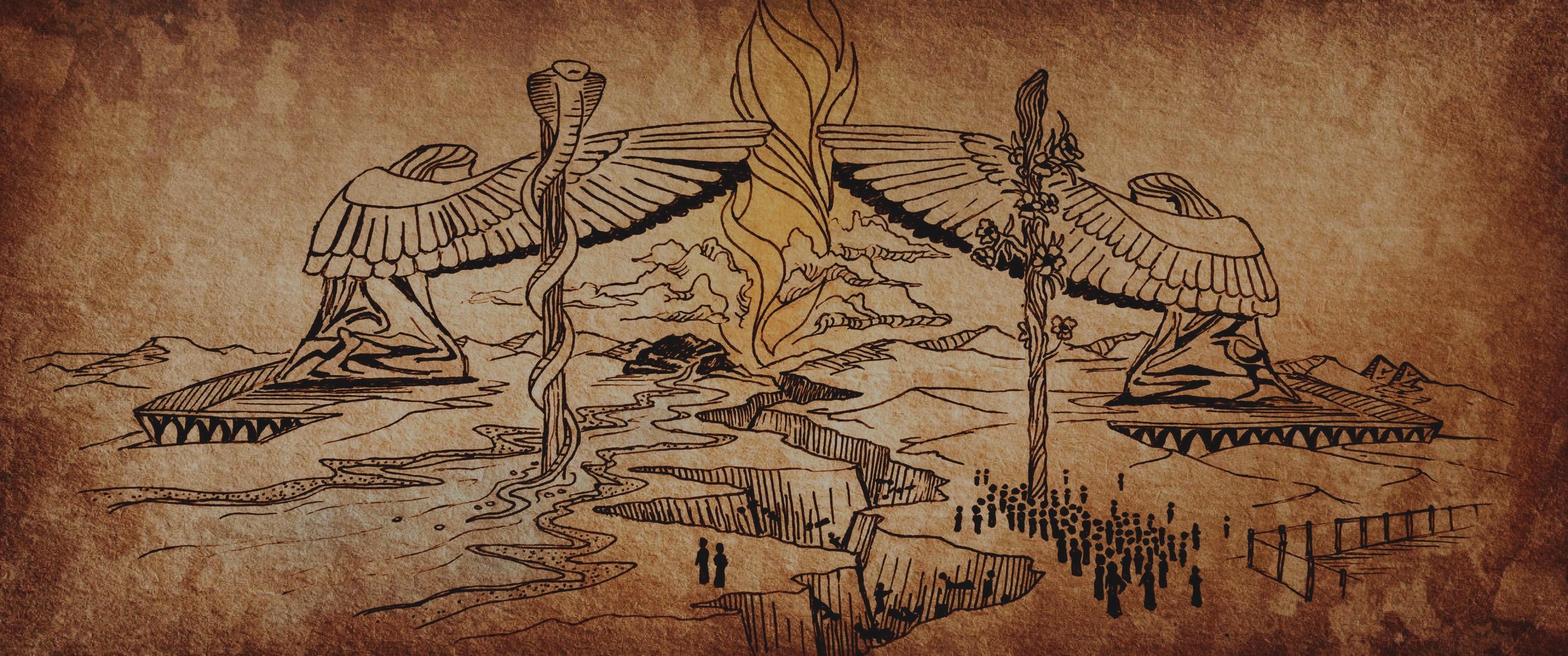Chukat חֻקַּת
“Ordinance Of”
Torah: Numbers 19:1–22:1
PROPHETS: Judges 11:1–33
APOSTOLIC WRITINGS: John 3:1–21
The devotional below is designed to help you dive deeper into God’s heart by exploring Torah as the gateway into transformational Bible reading.
torah
We are in the last year of the 40-year journey in the wilderness. The text begins with instructions regarding the preparations of the water of purification. The Ashes, or the “dust,” of the Red Hefer are to be mixed with living water so that one who has been defiled by touching a dead person can be purified. This follows themes set out in Genesis about man being made from the dust of the earth and the water of life.
Both Miriam and Aaron pass away in this portion, confirming that they too are part of the generation that will not enter the promised land. Between their deaths, the people contend with God because they are out of water. Meribah II (cf. Ex.17) worsens as Moses lacks faith and strikes the rock rather than speaking to it.
The journey toward the promised land requires the nation to travel around Edom but to destroy the Canaanites. This part of the journey is not without uprisings as again the people complain. They grow impatient. “Why have you brought us up out of Egypt to die in the wilderness? For there is no food and no water, and we loathe this miserable food.” This time God sends fiery serpents whose bite is fatal. The people see the correlation between their sin and the presence of the serpents. Once they acknowledge their sin, God instructs Moses to make a “fiery serpent, and set it on a standard; and it shall come about, that everyone who is bitten, when he looks at it, he shall live.”
Israel is now faced with traveling through the regions of the Amorites who took the land from the Ammonites and Bashan. Each was destroyed and our Torah portion ends with Israel camped in the plains of Moab opposite Jericho.
haftarah
The emphasis of the Rabbis from the Torah portion seems to be the conquest of Og and Sihon and others in the journey toward the promised land. Over 300 years later, descendants of the Ammonites come to reclaim their land. Jephthah, although previously an outcast in Gilead, now is asked by the leaders of Gilead to direct their army against the Ammonites. With God’s help, Jephthah defeats the Ammonites.
While the Rabbis pick up on the battle theme, there is another theme of foreshadowed redemption. Therefore the dust and living water theme in chapter 19; Moses’ lack of faith in chapter 20; and the bronze serpent in chapter 21. These themes play an important part in our New Covenant portion.
Apostlic Writings
Nicodemus got more than he bargained for. He couldn’t reconcile what the Pharisees had said about Yeshua with His signs and teachings. Nicodemus came to get his own questions answered. Regardless of the extent of his desire to know, Nicodemus was not prepared for Yeshua’s answers. This nighttime discussion reveals a man struggling to believe in Yeshua. Yeshua seems to recognize Nicodemus’ honest desire for eternal life. Yeshua uses our Torah portion to help him identify his need for salvation in a word picture that he can understand. The fiery serpent that Moses made in the Torah portion is a foreshadow of Messiah. “And as Moses lifted up the serpent in the wilderness, even so must the Son of Man be lifted up; that whoever believes may in Him have eternal life.”
Yeshua says very forthrightly, that the Son of Man didn’t come to judge the world but to save it. Finally, Yeshua says to Nicodemus, “...whoever lives by the truth comes into the light, so that it may be seen plainly that what he has done has been done through God.”
application
We dare not be surprised at Moses’ lack of faith nor Nicodemus‘ fear and nighttime stealth. Our own heart mocks us with memories of the times when we have choked. But for the grace of God, our stories would have been worse. We can claim no prize or depth of superior character. It’s humbling to realize that apart from Yeshua we can do nothing and have no hope. It is far more humbling to realize that with Yeshua we shall inherit eternal life. The irony continues as God calls upon us to boldly step into the light. To let our light shine in the midst of a dark, confused, lost, and hopeless world. Let Him shine in you.
The above summary is an adaptation of the work by Kiel Cooper with whom I was associated in Messianic Jewish congregational life when I wrote much of what is now the Parashah Project.
SATURDAY
Rest. Fellowship. Discussion.

